 Petzlover
Petzlover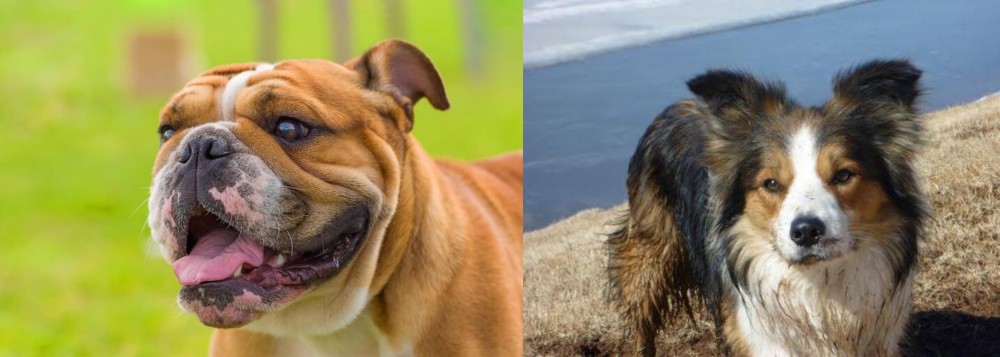 Both Miniature English Bulldog and Welsh Sheepdog are originated from United Kingdom. Miniature English Bulldog may grow 21 cm / 8 inches shorter than Welsh Sheepdog. Miniature English Bulldog may weigh 7 kg / 15 pounds lesser than Welsh Sheepdog. Miniature English Bulldog may live 3 years less than Welsh Sheepdog. Miniature English Bulldog may have less litter size than Welsh Sheepdog. Miniature English Bulldog requires Moderate Maintenance. But Welsh Sheepdog requires Low Maintenance
Both Miniature English Bulldog and Welsh Sheepdog are originated from United Kingdom. Miniature English Bulldog may grow 21 cm / 8 inches shorter than Welsh Sheepdog. Miniature English Bulldog may weigh 7 kg / 15 pounds lesser than Welsh Sheepdog. Miniature English Bulldog may live 3 years less than Welsh Sheepdog. Miniature English Bulldog may have less litter size than Welsh Sheepdog. Miniature English Bulldog requires Moderate Maintenance. But Welsh Sheepdog requires Low Maintenance
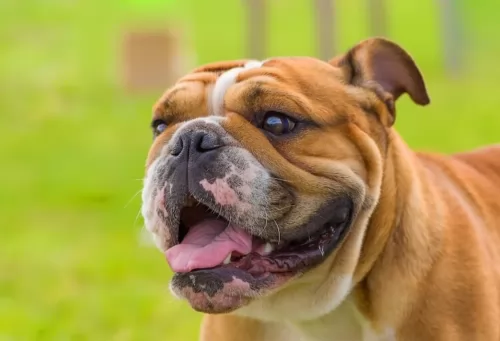 The Miniature Bulldog is such a cute little dog, hailing from England in the 18th and early 19th centuries. The exact development of the dog is unclear and it seems as though the breeders weren’t working together and were working in two different directions.
The Miniature Bulldog is such a cute little dog, hailing from England in the 18th and early 19th centuries. The exact development of the dog is unclear and it seems as though the breeders weren’t working together and were working in two different directions.
There is a lot of debate about the very name ‘miniature’ too because some breeders gave this name to a hybrid mix of a Pug and Bulldog. It seems some breeds were created by crossing English Bulldogs with French Bulldogs to decrease their size. Certainly the origins for the Miniature Bulldog are unknown and there isn’t one particular breeder who can be credited with developing the breed.
Because the Miniature Bulldog is a hybrid breed, it isn’t accepted by the AKC, but it is accepted by the American Canine Hybrid Club as well other registries.
 The Welsh Sheepdog is sometimes referred to as the Welsh Collie, but it is not a collie in anyway. It is the cross between the Border Collie and Welsh Sheepdog that is actually the Welsh Collie. The sheepdog was bred for herding not appearance and they are not all consistent in looks and size. They are a collie type but do not have recent collie ancestors. In fact the Border Collie has basically replaced the Welsh Sheepdog in herding sheep in Wales. The Welsh Sheepdog is still being bred as an indigenous breed. They are still prized for their ability to work independently and herding cattle, pigs, horses and goats as well as sheep. They were originally drovers.
The Welsh Sheepdog is sometimes referred to as the Welsh Collie, but it is not a collie in anyway. It is the cross between the Border Collie and Welsh Sheepdog that is actually the Welsh Collie. The sheepdog was bred for herding not appearance and they are not all consistent in looks and size. They are a collie type but do not have recent collie ancestors. In fact the Border Collie has basically replaced the Welsh Sheepdog in herding sheep in Wales. The Welsh Sheepdog is still being bred as an indigenous breed. They are still prized for their ability to work independently and herding cattle, pigs, horses and goats as well as sheep. They were originally drovers.
In the 18th century there were many different Welsh herding dogs and one drover might have 4-6 different types of sheepdogs as guard dogs, herders and hunters. Most of these breeds were taller than the Welsh Sheepdog. By 1940 there aere only a couple of breeds doing these jobs in Wales. The purebred Welsh Hillman and Black and Tan Sheepdog were on the verge of extinction at that point.
At that time the most common dogs were descendants of the Black and Tan Sheepdog and the Border Collie. The Welsh Sheepdog was still working in central Wales and in the north country. They were purely a working breed and not a show breed in any way. They remain that today.
They are a landrace and very rare today. They have been around for more than 800 years with no effort at standardization for this working dog. They are only registered with the WSS or Welsh Sheepdog Society and the DRA Dog Registry of America.
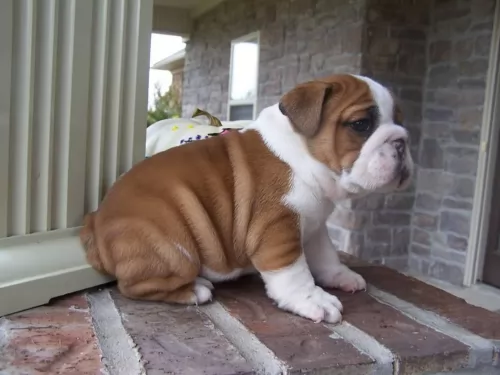 Because the Miniature Bulldog is a cross between two purebred breeds – the Pug and the English Bulldog. You can expect different looks and characteristics from each breed.
Because the Miniature Bulldog is a cross between two purebred breeds – the Pug and the English Bulldog. You can expect different looks and characteristics from each breed.
Your mini Bulldog is a small breed dog standing between 25 and 35cm male and female and weighing between 11 and 18kg. The average litter size for these dogs is about 4 puppies.
The Miniature Bulldog has a short coat which sheds moderately and that comes in different colors such as tan and white, brindle, with black and grey also having a show in.
The Miniature Bulldog is a social, friendly breed who is able to get on well with all members of the family, including children and pets in the home. His very stature makes it that he isn’t the most active of dogs, but nonetheless you still want to exercise him and take him for walks to avoid obesity.
As with all dogs, training and socialization are imperative because this is a strong-willed dog who wants to go his own way.
 Bred for their herding abilities not their appearance, the Welsh Sheepdog can vary in color, build and size. They have long legs, broad chests and wide muzzles. They are all around bigger than the Border Collie. They come in black and white, tricolor, red and white and merle. The coat can be short or long and the ears pricked and folded at the top.
Bred for their herding abilities not their appearance, the Welsh Sheepdog can vary in color, build and size. They have long legs, broad chests and wide muzzles. They are all around bigger than the Border Collie. They come in black and white, tricolor, red and white and merle. The coat can be short or long and the ears pricked and folded at the top.
They look most like the Border Collie with a taller, broader, more solid build. They typically are stronger than the Border. Their head is distinctly collie shaped, flat and broad with the wide muzzle. The nose is black and the eyes are oval and brown. The merles can have striking blue eyes.
This is an athletic dog and you can tell by looking at her. Well muscled, broad back and neck with a long upward tail. Their tough paws are perfect for the rough terrain and Wales mountainsides.
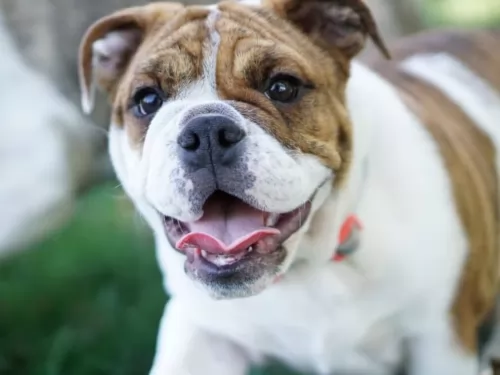 You’ll love having one of these entertaining, friendly dogs by your side. He is docile, social, fun and a bit stubborn too but he is able to get on well with children in the home as well as with other pets.
You’ll love having one of these entertaining, friendly dogs by your side. He is docile, social, fun and a bit stubborn too but he is able to get on well with children in the home as well as with other pets.
He can adapt to life in the city as well as in the countryside as he doesn’t require too much exercise.
Take special care of him and he’ll make you a splendid family pet.
 1Children friendliness not really – aloof and concerned with job- all this dog wants to do is work.
1Children friendliness not really – aloof and concerned with job- all this dog wants to do is work.
3.Adaptability – Not an inside dog in any way. They need several hours of exercise per day.
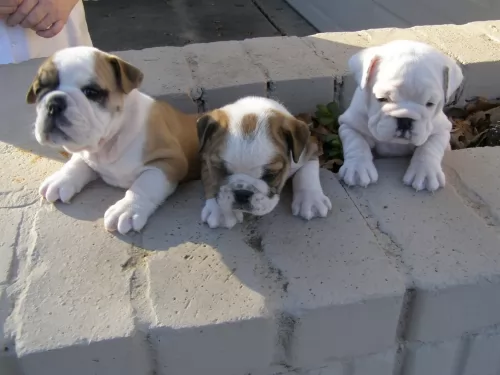 Unfortunately the origins of the Miniature English Bulldog are not 100% clear and therefore other important information isn't readily available.
Unfortunately the origins of the Miniature English Bulldog are not 100% clear and therefore other important information isn't readily available.
These dogs are always prone to breathing and nasal abnormalities because of the shape of their faces as well as being prone to heart deficiencies. Snoring, grunting and quite a bit of panting is part and parcel of the mini English Bulldog.
They’re also prone to overheating, cherry eye and hip dysplasia. It is most unlikely that your Miniature English Bulldog is going to get any of these illnesses and the good news is that he can live to be up to 12 years of age.
 Usually an indigenous rare breed does not have a lot of genetic or hereditary health concerns. This is a little different with the Welsh Sheepdog can suffer from any of these conditions.
Usually an indigenous rare breed does not have a lot of genetic or hereditary health concerns. This is a little different with the Welsh Sheepdog can suffer from any of these conditions.
• Epilepsy – Most respond well to medication and others might not even need medication.
• Collie Eye Anomaly – This is common in collie breeds like the rough coated collie. The development of the Choroid is impaired resulting in harm to the circulation of blood to the eye.
• Atopic Dermatitis – Allergic skin disorder irritating paws, ears, and perineum.
• PRA Progressive Retinal Atrophy - deterioration of the retina can lead to blindness. Inherited.
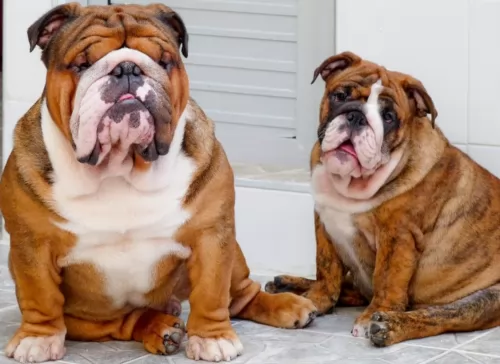 Feeding the Miniature English Bulldog is hugely important. It is imperative that he doesn't become obese. Buy the best dog food there is and see to it that he also gets some home-made food. Chop up boiled chicken, brown rice ad vegetables for your pet and mix occasionally into his dry kibble.
Feeding the Miniature English Bulldog is hugely important. It is imperative that he doesn't become obese. Buy the best dog food there is and see to it that he also gets some home-made food. Chop up boiled chicken, brown rice ad vegetables for your pet and mix occasionally into his dry kibble.
Dogs love simple food – their stomachs can’t cope with different foods. They appreciate consistency with uncomplicated but nutritious foods. The bulldog is a dog which can easily overheat, so make sure he has constant access to fresh cool drinking water. On a hot day you can even use a spray bottle and allow some spray mist sprayed into his face to cool him down.
The Mini English Bulldog is a dog that sheds so you will need to brush him at least twice a week to get rid of loose hair.
Check around his eyes and inside his ears for infection.
Brush his teeth 2 or 3 times a week to get rid of plaque so as to prevent dental decay which can be detrimental to his health.
His face and body have wrinkles, making him more susceptible to skin allergies and you’ll need to keep your eye open for these as they can be terribly painful and frustrating for your pet.
Keep his nails trimmed.
He is neither sleek, agile or quick and you can see just by looking at him that he isn’t designed for being sporty. A slow walk every day will be enough for him as well as some easy-going games inside.
 1Feeding the puppy active dog feed high quality high protein food. 3-4 x day 1-2 cups
1Feeding the puppy active dog feed high quality high protein food. 3-4 x day 1-2 cups
2.Feeding the adult Active dog feed high quality high protein 2x day 2 cups a day.
4. Games and Exercises This is an extremely active breed that needs a job. They are not the best pets they are working dogs. They need a lot of exercise. They are not good at living indoors. At least 2 hours of exercise daily is a must.